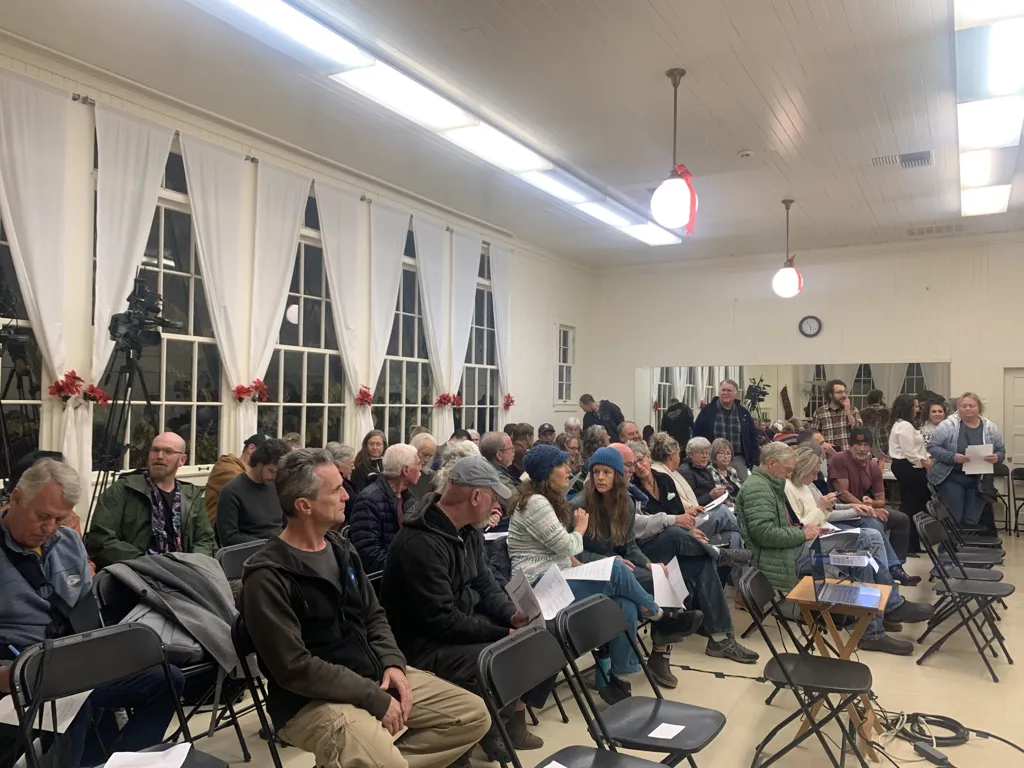Presenting to a packed house on Tuesday night, consultants hired by the Mendocino City Community Services District, overseers of the coastal community's water, said that the town is facing a water deficit that cannot be met by existing water sources.
Adam Rausch, a senior resource engineer with the consulting firm GHD, stated that less than half of Mendocino's "Maximum Day Demand" of 534,000 gallons - meaning 85 gallons per day per person - could be met by current supplies. In fact, supplies would not even meet an "Average Day Demand" of 356,000 gallons per day.
"A case to be made for a combination of groundwater and surface water being the most cost-effective solution if that is what the community wants," Rausch said.
The purpose of Tuesday's meeting was to solicit community input on GHD's draft Source Water Study findings. The community showed up in large numbers both in-person and via Zoom.
"In my four years of service I had never seen a crowd this big or maybe even half this crowd," district board chair Dennak Murphy noted. Superintendent Ryan Rhoades added it was "the best turnout in MCCSD history."
The GHD study identified several potential sources but highlighted problems with each:
- Surface water: Could meet the deficit but requires extensive permits and unsightly storage facilities.
- Groundwater: Insufficient to meet needs even if a delivery system were created.
- Desalination: Expensive and endangers ecosystems.
- Recycled water: Generally not potable; can only address part of the deficit.
A lively question and answer session followed. Board member Ishvi Aum suggested expanding the study area for identifying additional water sources. He proposed considering locations outside the coastal zone for reservoirs to ease permitting processes.
"Locations outside the coastal zone need to be considered," Aum said, suggesting state funding could offset costs for longer pipelines required by such solutions.
A consensus emerged against desalination from Big River due to its recovering ecosystem. Local resident Sandra Kearney emphasized protecting Big River from further exploitation:
"Any system should not affect Big River," she asserted amid applause from attendees.
